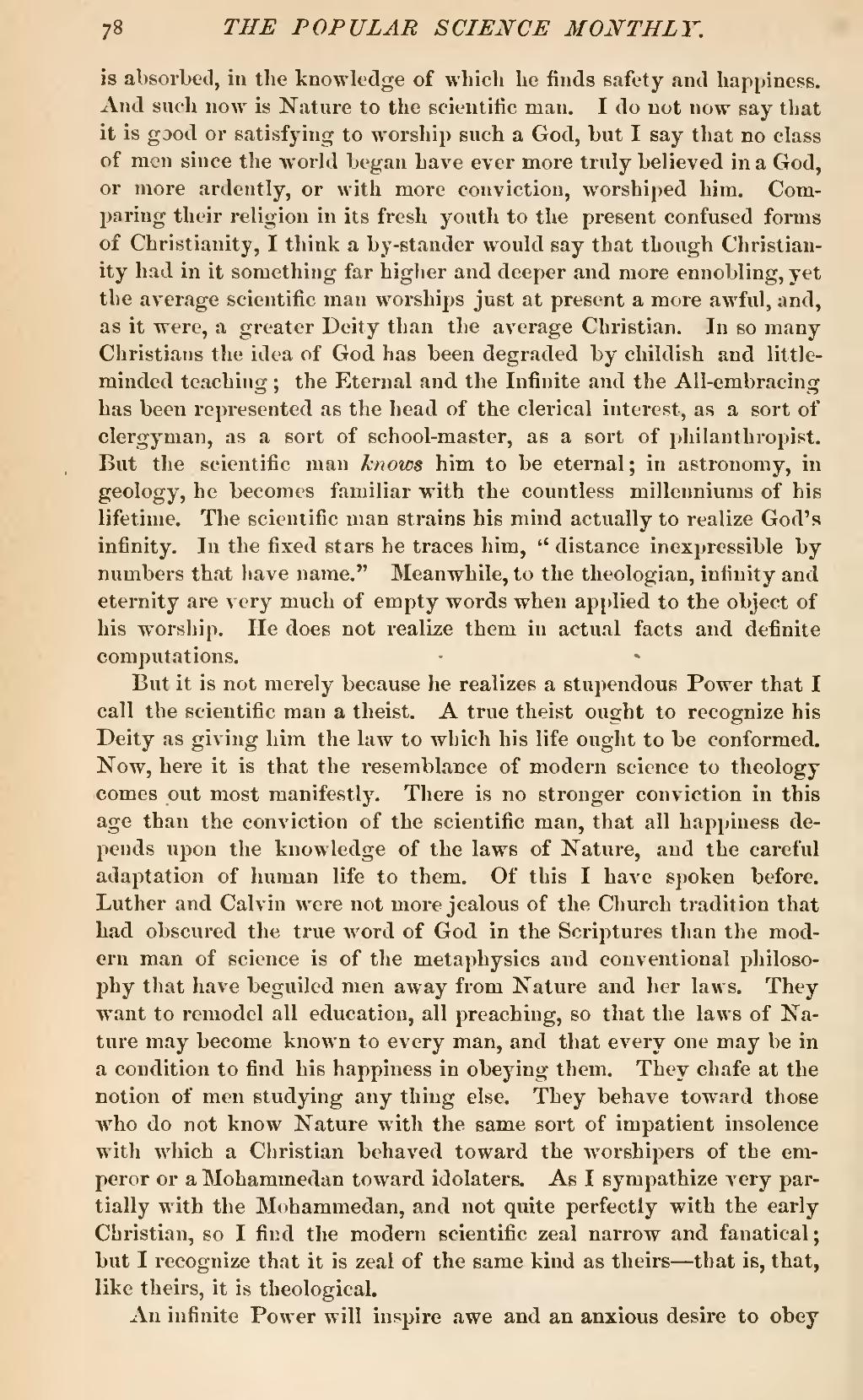is absorbed, in the knowledge of which he finds safety and happiness. And such now is Nature to the scientific man. I do not now say that it is good or satisfying to worship such a God, but I say that no class of men since the world began have ever more truly believed in a God, or more ardently, or with more conviction, worshiped him. Comparing their religion in its fresh youth to the present confused forms of Christianity, I think a by-stander would say that though Christianity had in it something far higher and deeper and more ennobling, yet the average scientific man worships just at present a more awful, and, as it were, a greater Deity than the average Christian. In so many Christians the idea of God has been degraded by childish and little-minded teaching; the Eternal and the Infinite and the All-embracing has been represented as the head of the clerical interest, as a sort of clergyman, as a sort of school-master, as a sort of philanthropist. But the scientific man knows him to be eternal; in astronomy, in geology, he becomes familiar with the countless millenniums of his lifetime. The scientific man strains his mind actually to realize God's infinity. In the fixed stars he traces him, "distance inexpressible by numbers that have name." Meanwhile, to the theologian, infinity and eternity are very much of empty words when applied to the object of his worship. He does not realize them in actual facts and definite computations.
But it is not merely because he realizes a stupendous Power that I call the scientific man a theist. A true theist ought to recognize his Deity as giving him the law to which his life ought to be conformed. Now, here it is that the resemblance of modern science to theology comes put most manifestly. There is no stronger conviction in this age than the conviction of the scientific man, that all happiness depends upon the knowledge of the laws of Nature, and the careful adaptation of human life to them. Of this I have spoken before. Luther and Calvin were not more jealous of the Church tradition that had obscured the true word of God in the Scriptures than the modern man of science is of the metaphysics and conventional philosophy that have beguiled men away from Nature and her laws. They want to remodel all education, all preaching, so that the laws of Nature may become known to every man, and that every one may be in a condition to find his happiness in obeying them. They chafe at the notion of men studying any thing else. They behave toward those who do not know Nature with the same sort of impatient insolence with which a Christian behaved toward the worshipers of the emperor or a Mohammedan toward idolaters. As I sympathize very partially with the Mohammedan, and not quite perfectly with the early Christian, so I find the modern scientific zeal narrow and fanatical; but I recognize that it is zeal of the same kind as theirs—that is, that, like theirs, it is theological.
An infinite Power will inspire awe and an anxious desire to obey
